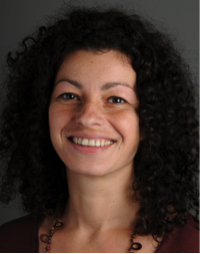| Session | 00 SES 10.2 |
| Time | Thursday, 6 September, 11:00 - 12:00 |
| Location |
Konzertsaal/Auditorium (Five minute walk from main building. There will be student helpers in “ask me” t-shirts to guide you) |
The Fascination with Adult Learning as the Panacea for Societal Injustices: Participation, Visibility, and In/exclusion
Public policy and reforms recognize that adult learning occurs lifelong and life-wide, but devalue the educating process and practices with adults. Widespread discourses on lifelong learning focus on the need for countries to re-skill and up-skill adults in order to achieve desirable levels of competency among their labour force. Drawing on economic-rationalism, these discourses have contributed to quantifying and overrating learning outcomes at both individual and county levels. By contrast, inputs and activities that bring formal and informal education structures and processes to life have been at best relegated to the background. But education and learning are inseparable elements that connect individuals to their complex social lives and environments. Furthermore, a partisan fascination with adult learning (rather than education) in policy debates and deliberations comes with its own set of values and moral commitments on what kind of learning is worth public and/or private backing.
This presentation explores different education structures and processes subsumed to adult learning at school, work and in the community, how they are being shaped and affected by public policy and reforms, and highlights policy associations and inconsistencies. Disputing the set of values and moral commitments to adult learning and education, it also presents them as political and cultural hegemonic projects for societal stabilization or change. On this ground, it explores who participates in adult education opportunities, which opportunities gain visibility, and how all this affects the degree of social in/exclusion, and ultimately social in/justice.
The lecture concludes by considering how more positive effects of adult education for social inclusion and justice can be encouraged through rigorous and novel research, better communication strategies, and enhanced capacity for cross-fertilizations of knowledge and ideas between research, policy, and practice.
Bio

Dr Marcella Milana is Associate Professor at the University of Verona, Italy, where she directs the International Research Centre for Global and Comparative Policy Studies on the Education and Learning of Adults (IRC-GloCoPoS). Her research deals with the politics, policy and governance of adult education and learning, from comparative and global perspectives. She has lived and researched in North America (United States), Latin America (Argentina, Brazil), and Europe (Denmark, Italy), and is currently involved in a European project (ENLIVEN) investigating how policy interventions in adult education markets can become more effective. A member of the Italian Society of Pedagogy (SIPED) and co-convenors of its Working group on Comparative Studies in Education, she also joins the board of the European Society for Research on the Education of Adults (ESREA), co-convenes its Research Network on Policy Studies in Adult Education, and co-edits the International Journal of Lifelong Education (Taylor & Francis). Her recent publications include: Global Networks, Local Actions: Rethinking Adult Education Policy in the 21st Century (Routledge, 2017), and (with S. Webb, J. Holford, R. Waller & P. Jarvis) The International Handbook on Adult and Lifelong Education and Learning (Macmillan, 2018).
PDF of Conference Programme
Please consider the environment and do NOT print the entire Programme. The Venue Booklet will be part of the conference material, so no need to print in advance either. Thank you.